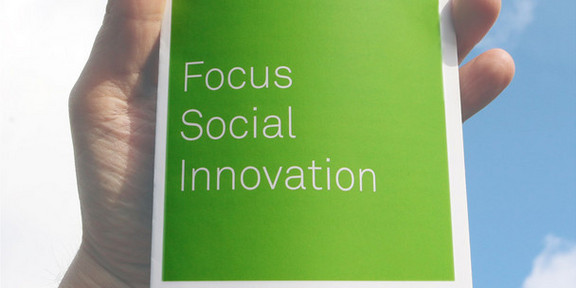2023
Four new EU projects to start at sfs

There were lots of good news for the researchers at TU Dortmund University’s Sozialforschungsstelle in recent weeks. The EU is about to fund four new projects: They will focus on innovation topics including Hubs for Circularity, universities’ potential to work on the Sustainable Development Goals, and entrepreneurship courses in African countries. With these projects as well as new network partners from the Global South, international social innovation research at sfs receives another boost.
In the context of the green transformation, the IS2H4C project deals with the advancement of selected industrial hubs into so-called Hubs for Circularity (H4C). IS describes how a network of industrial players can foster sustainable innovation and long-term cultural change and how all actors involved can profit from adjusting technological and work processes. IS2H4C will support such industrial development by implementing industrial symbiosis at a regional level through improved cooperation as well as improved use of technologies. The team of TU Dortmund University’s Social Research Centre around Dr Michael Kohlgrüber is leading a work package that takes the interests of the various stakeholders involved into account. Thereby, non-technical challenges for the establishment of H4C are identified and addressed. The four-year project will be conducted by a consortium of 32 organisations. It is led by Dr Devrim Murat Yazan from the University of Twente. Michael Kohlgrüber on the project: "Hubs for Circularity are key to an industry which is more environmental-friendly and which uses resources more efficiently. But this goes along with new competences required from staff, a re-organisation of work, and much more."
The ErasmusPlus funded project “EngageSDGs” addresses universities in South Africa, Mauritius and Zambia and aims to build the capacity of the so-called SADC (Southern African Development Community) universities to achieve the Sustainable Development Goals (SDGs) in collaboration with partners outside the universities. Five EU higher education institutions as well as two associations (SARUA and OBREAL Global) are involved in the consortium. TU Dortmund’s sfs will develop a framework of participatory approaches and welcome a group of representatives from SADC partner institutions on a study visit to Dortmund in order to discuss the potential of these approaches for universities. Dr. Karina Maldonado-Mariscal (sfs) emphasises: "This project is particularly significant in terms of our experience with social innovation in education and higher education institutions, but also as a learning process between African and European institutions with regard to sustainability goals.”
The „Smart Ville“ project focuses on strengthening rural areas in Namibia and Zambia. By developing entrepreneurship training courses and establishing Living Labs in an interdisciplinary network with universities from Finland, Namibia, Zambia and Germany over a period of two years, formal and informal educational opportunities in these regions will be expanded. Moreover, the employability of disadvantaged groups will be strengthened. sfs will bring the perspective of digital inclusion and dissemination of social innovations to this project and will be involved in the development of the entrepreneurship training courses. Ann Christin Schulz (sfs): „Smart Ville will allow us to further integrate two important research fields, the diffusion of social innovations on the one hand and digital inclusion processes on the other. At this thematic intersection, we find it particularly exciting to work on and with the Smart Living Labs in Namibia and Zambia.“
“SUNMENTORS: Support for University Student Mental Health - Training for Teaching Staff" is funded by ErasmusPlus, as well. The two-year project, coordinated by TU Dortmund University’s sfs, aims to train teaching staff at universities in order to better address the special needs of students struggling with their mental health. In addition to TU Dortmund University, where sfs is cooperating with DoBuS, three other universities and two social education institutions from Belgium, Greece, Great Britain and Italy are involved. Christina Meyn, coordinator of the project, highlights the importance of SUNMENTORS: "Student mental health is an increasing challenge for universities world-wide, especially since the pandemic. Teaching staff often lack awareness or are simply overburdened with it in their already challenging daily work. Yet, they often play a key role for the students affected in order to be able to successfully manage their studies. In addition to the joint development of training modules, SUNMENTORS also enables us to engage in an exchange across Europe about better learning environments at universities with regard to mental health."




![[Translate to English:] [Translate to English:]](/storages/zentraler_bilderpool/_processed_/a/f/csm_Kontakt_b86e8d8ecc.png)
![[Translate to English:] [Translate to English:]](/storages/sfs-sowi/_processed_/7/e/csm_header_collage_sfs_eving_sozialforschungsstelle_dortmund_31bd3c09fb.jpg)